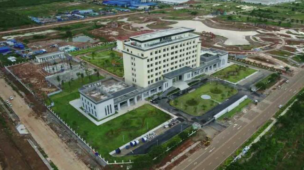Tempo de leitura: 2 minutos
Business today in Latin America is broadening with investors seeking a chance to start businesses in these regions. However, taking the leap and starting investments in a different country can be a difficult decision regardless of extensive independent research.
Realistically, some businesses are successful, and some fail due to the lack of knowledge on whether their goods and services impact the market and location. All it takes is a bit of help from an external market specialising in business expansion to new markets and to guide an entrepreneur through the steps of forming a company abroad. Developing regions such as Latin America have a lot to offer.
Ultimately, regional governments understand the gamble of starting a project of investments abroad is difficult. Several countries in Latin America have therefore created a liberation of trades in goods and service through international relations agreements and what are known as ‘Free Trade Zones.’
Firstly, it is important to address the different names that Foreign Trade Zones (FTZ) come under. They can also be referred to as foreign free zones, free ports or bonded warehouses.The point of an FTZ is to enable foreign and domestic goods without having to pay out custom duties, like quotas and tariffs. Research has proven that FTZs have are an effective strategy to cut down increasing supply chain costs. Additionally, FTZ is the ideal method to enhance international business.
FTZs are secure geographical areas that help boost business and foreign trade by attracting investors thanks to the openness and simplified government restrictions within their territories. The main purpose of an FTZ is to remove high tariffs and complicated custom rules and regulations from seaport, airport and borders. The FTZ promotes an area where goods can be landed, stored, handled, manufactured and re-exported within the regulations without the intervention of the then authorities.
Each country has different free-trade regulations, yet the commonality is the lower taxes on income; 0% value-added tax and 0% on tariffs. Improving the movement of goods between individual countries indeed creates the possibility of securing imports from third countries or even excluding them.
The FTZ is expected to facilitate open trade anchored in liberalized provisions on foreign exchange management, tax policies, and customs supervision, to name a few. This can also create more jobs, thus reducing unemployment, and receive new capital investment. This is because these areas are used by multinational companies that set up factories to produce their material.






Os comentários foram encerrados, mas trackbacks e pingbacks estão abertos.